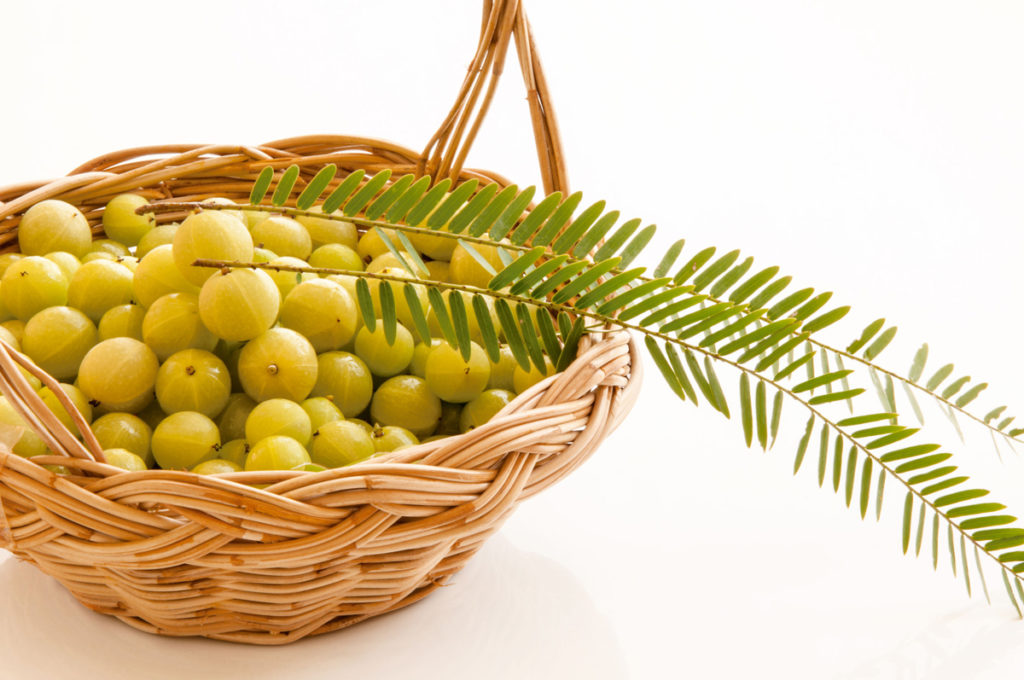
Amalaki is renowned for its immunity and antiaging benefits and is an excellent supplement during the fall and winter seasons. According to Ayurveda, fall and early winter are characterized by Vata Dosha. In Vata Dosha there is a predominance of cold, dry, rough, light, mobile, subtle, clear, dry and astringent qualities, all of which can be harsh on the system. Furthermore, aggravation of Vata can spread easily to the other two Doshas and lead to lower immunity and resilience, which is the pathway to disease and aging. Prevention is the primary approach emphasized in Ayurveda to stay in balance during this seasonal transition, and Amalaki is the most popular ancient ally from Ayurveda for health and vitality.
Amalaki, commonly known as the Indian gooseberry, is the term used for the Ayurvedic medicinal use of the fruit of the Amla tree. It is considered the “mother” as it performs the job of taking total care of the mind-body system and is known as the ultimate healer due to its immune restorative properties. In the Charaka Samhita – one of the root texts for Ayurvedic science – Charaka states, “Of all the rasayanas, Amalaki is revered as one of the most potent and nourishing; Amalaki is the best among rejuvenative herbs.” Rasayanas in Ayurveda are rejuvenating therapies which support antiaging and longevity.
Amalaki contains Emblica officinalis in traditional use. Its primary quality and main therapeutic benefit is Vayastapana, which means “stopping the ageing,” and it is the theme of many rejuvenating compositions like Chyavanaprash, a classical Ayurvedic recipe which has been used as a tonic for the young and old for centuries. Ancient documents encourage the use of Amalaki as an everyday food to promote healthy living, and it has been heralded as an aphrodisiac.
The benefits of Amalaki are numerous, which part of why it is considered to be the best antiaging ingredient in all of Ayurveda.
Rich Vitamin C content - the highest source of heat stable Vitamin C
Source of polyphenols and supports digestion, metabolism, elimination and normal liver function
Excellent for the hair and skin
Amalaki contains five of the six tastes according to Ayurveda, lacking only in salty. It is sour, sweet, bitter, astringent and a slightly pungent. This range of tastes make it beneficial for all Doshas, which means – everyone can benefit from Amalaki, regardless of individual mind-body constitution. Its sweetness and sourness creates a strengthening and balancing effect on Vata, its sweetness and astringency balances Pitta, and its astringent and pungent aspects help to dry out the dampness of Kapha.
Ayurvedic Properties:
Rasa (taste): Sour, sweet, pungent, bitter, astringent
Veerya (action): Cooling
Vipaka (post-digestive effect): Sweet

No comments:
Post a Comment